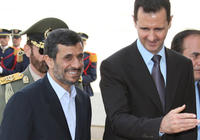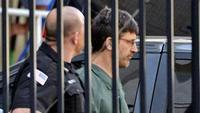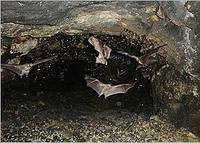-
Food-related disease outbreaks can teach us about the consequence of food terrorism
Since unintentional food-related outbreaks have become so common, policy makers could use data from unintended foodborne disease outbreaks to estimate the effects of intended foodborne disease outbreaks. The impact on trade and economies is the primary motive for food terrorism, according to the World Health Organization (WHO), but beyond the financial loss, such intended foodborne disease outbreaks may even impact political stability.
-
-
U.K. launches investigation of Muslim Brotherhood in London
The U.K. government has launched an investigation into the activities of the Muslim Brotherhood to determine whether the organization is using London as a base for planning extremist attacks after the Egyptian military has cracked down on the Islamist movement, and Egyptian courts have outlawed it. While the British government has cracked down on what it regards as terrorist and extremist organizations, the Muslim Brotherhood had not been regarded as such, especially after it had won the parliamentary elections in Egypt in December 2011 and the presidential elections in June 2012, which made Muhammad Morsi the president of Egypt.
-
-
Anti-immigrants backlash in Europe intensifies
Anti-immigration groups and parties are enjoying a surge in many European countries, including Britain, France, and Austria, as many European economies face high unemployment and declining wages. The open-border policies of the European Union (EU), which allow citizens of EU member states to work and receive social welfare anywhere within the EU, have led many citizens to call for immigration limits and quotas.
-
-
France's new approach to preventing French Muslims from going to fight in Syria

French authorities reported in January 2014 that roughly 700 French residents had traveled to Syria to join in the fight against Syrian forces. The travel of French pro-jihadists to Syria exceeds the number of Europeans who left to fight in Iraq and Afghanistan. France will soon adopt preventative measures, currently practiced in Britain, Denmark, and the Netherlands, to stop minority youths from pursuing jihad in Syria. The new approach will encourage local law enforcement, schools, and community leaders to help identify at-risk youths before radicalization begins and advances, then introduce the youths to local prevention centers.
-
-
Critics: administration does not deport deportation-eligible undocumented immigrants
A recent report by the Center for Immigration Studies(CIS), a Washington, D.C. nonprofit calling for more restrictive immigration policies, says that in 2013, U.S. Immigration and Customs Enforcement (ICE) deported fewer than 195,000 illegal immigrants despite receiving more than 720,000 notices on immigrants who could be eligible for deportation. Moreover, 68,000 immigrants released from pending deportation cases had criminal convictions on their records, the report stated. Pro-immigration advocates say the figures are misleading. “CIS is essentially asserting that a legal-permanent resident or a recently naturalized citizen with a broken tail light should be charged by ICE and removed from the country although there is no basis in law for such action,” said Benjamin Johnson of the American Immigration Council.
-
-
New center will work to improve methods to detect, prevent the spread of nuclear weapons
The National Nuclear Security Administration (NNSA) has awarded the University of Michigan $25 million to establish the Center for Verification Technology. A team from thirteen universities will work with eight national labs to analyze nuclear nonproliferation efforts, improve technologies for monitoring weapons-grade materials and detecting secret weapon tests, and train the next generation of nonproliferation experts.
-
-
U.K. prisons serve as recruitment centers for jihadi causes

A recent report details the growing population of Muslims in British jails, many of whom are declared Islamic extremists. Top-security prison Whitemoor, home to many extremists serving life sentences for plotting acts of terror in the United Kingdom, is considered a recruitment center for al-Qaeda, according to prison inspectors. Roughly 42 percent of prisoners at Whitemoor are Muslims, a stark contrast to the overall U.K. population in which only 5 percent practice Islam.In all, there are 11,729 Muslims in British jails, about one in seven of all inmates.
-
-
Possibility of “dirty bombs” a major terrorism threat
The International Atomic Energy Agency (IAEA) has warned that there were 140 cases of missing or unauthorized nuclear and radioactive material in 2013 — a pressing reminder that the possibility of possession of nuclear materials by terrorist organizations is both real and current.
-
-
Report critical of intelligence, law enforcement Boston Marathon information sharing
A 37-page report released by the House Committee on Homeland Security, asserts that the FBI and Customs and Border Protection (CBP) all failed properly to coordinate and investigate Tamerlan Tsarnaev in the years before his involvement in the deadly bombing attack at the Boston Marathon in 2013. “There were opportunities in which greater sharing of information might have altered the course of events, the report goes on to say, “Such failures must not be allowed to persist.”
-
-
House mulls Syria-related sanctions on Iran

U.S. House legislators are considering new terrorism-related sanctions on Iran, targeting the country’s support for Hezbollah, after ceding to the Obama administration’s request to back off on sanctions related to Iran’s nuclear program. The House Foreign Affairs Committee hopes the move will reflect their independence from the White House and also bring more focus to the Syrian crisis.Lawmakers say the bill would reflect the most effective ways to disrupt Iran’s financial support of Hezbollah.
-
-
Michigan terrorism case hinges on informant’s testimony
Mohammad Hassan Hamdan of Dearborn Heights, Michigan was arrested on Sunday, 16 March 2014, at Detroit Metro Airport by FBI agents who claim that Hamdan told an undercover informant of his plans to travel to Lebanon to join Hezbollah as a fighter supporting Syrian president Bashar al-Assad. Hamdan’s family and defense attorney note that the informantis a friend of Hamdan’s ex-girlfriend, and that he is receiving an immigration benefit for his services, two facts that should make the information he provides suspect.
-
-
Johnson makes his presence known at DHS
DHS spent much of 2013 operating with forty-eight vacancies in top management positions, but since Congress approved Jeh Johnson as head of DHS in December 2013, the department has successfully filled seventeen positions.The appointment of former chief technology officer for McAfee, Phyllis Schneck, as deputy undersecretary for cybersecurity,reflects Johnson’s attempt to bridge the gap between DHS and the private sector. Johnson has pushed for other changes in the 22-agency, 240,000-employee organization by introducing some operational philosophies gained from his time as General Counsel for the Defense Department. “Meetings at DHS are already starting about two hours earlier, like they did at DoD,” says one person with multiple contacts at the department.
-
-
Judge rebukes Sheriff Arpaio, his deputy for mocking, defying court orders
Grant Murray Snow, District Judge for the United States District Court for Arizona, earlier this week rebuked Sheriff Joe Arpaio of Maricopa County and chief deputy Jerry Sheridan for defying and mocking Snow’s order, issued last year, to stop targeting Latinos during routine patrols, traffics stops and work raids. “Whether or not the sheriff likes it, there is a distinction in immigration law that was not understood by the population and, with all due respect to you, it is not understood by the sheriff, which is that it is not a criminal violation to be in this country without authorization,” Judge Snow said pointedly.
-
-
Prosecutors ask for confidentiality in NY “Death Ray” case

Glendon Scott Crawford,a former General Electric Co. industrial mechanic, is standing trails in Albany, New York, for developed a radiological dispersal device which he tried to sell to both the KKK and to Jewish organizations so they could use it to kill Muslims. Several experts argued the device would not work since it would require massive amounts of electricity, weigh enough to crush most vehicles and would require victims to remain still in order to face prolonged exposure from close-range radiation.
-
-
Scientists learn how Marburg virus grows in cells

Infections with Marburg virus lead to death in as many as 90 percent of those infected. Once restricted to Africa, cases of the virus have been identified in travelers from Europe and the United States, making effective prevention and treatment a top biodefense priority. Study suggests targeting molecular interaction of virus and host protein may arrest this lethal virus.
-
More headlines
The long view
Factories First: Winning the Drone War Before It Starts
Wars are won by factories before they are won on the battlefield,Martin C. Feldmann writes, noting that the United States lacks the manufacturing depth for the coming drone age. Rectifying this situation “will take far more than procurement tweaks,” Feldmann writes. “It demands a national-level, wartime-scale industrial mobilization.”
No Nation Is an Island: The Dangers of Modern U.S. Isolationism
The resurgence of isolationist sentiment in American politics is understandable but misguided. While the desire to refocus on domestic renewal is justified, retreating from the world will not bring the security, prosperity, or sovereignty that its proponents promise. On the contrary, it invites instability, diminishes U.S. influence, and erodes the democratic order the U.S. helped forge.
Fragmented by Design: USAID’s Dismantling and the Future of American Foreign Aid
The Trump administration launched an aggressive restructuring of U.S. foreign aid, effectively dismantling the United States Agency for International Development (USAID). The humanitarian and geopolitical fallout of the demise of USAID includes shuttered clinics, destroyed food aid, and China’s growing influence in the global south. This new era of American soft power will determine how, and whether, the U.S. continues to lead in global development.
Water Wars: A Historic Agreement Between Mexico and US Is Ramping Up Border Tension
By Natasha Lindstaedt
As climate change drives rising temperatures and changes in rainfall, Mexico and the US are in the middle of a conflict over water, putting an additional strain on their relationship. Partly due to constant droughts, Mexico has struggled to maintain its water deliveries for much of the last 25 years, deliveries to which it is obligated by a 1944 water-sharing agreement between the two countries.
How Disastrous Was the Trump-Putin Meeting?
In Alaska, Trump got played by Putin. Therefore, Steven Pifer writes, the European leaders and Zelensky have to “diplomatically offer suggestions to walk Trump back from a position that he does not appear to understand would be bad for Ukraine, bad for Europe, and bad for American interests. And they have to do so without setting off an explosion that could disrupt U.S.-Ukrainian and U.S.-European relations—all to the delight of Putin and the Kremlin.”
How Male Grievance Fuels Radicalization and Extremist Violence
By Haily Tran
Social extremism is evolving in reach and form. While traditional racial supremacy ideologies remain, contemporary movements are now often fueled by something more personal and emotionally resonant: male grievance.
